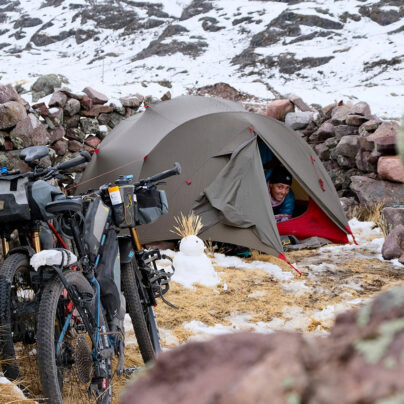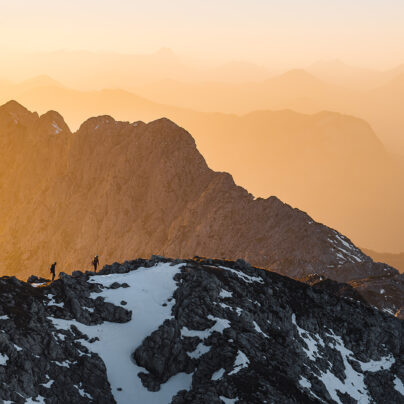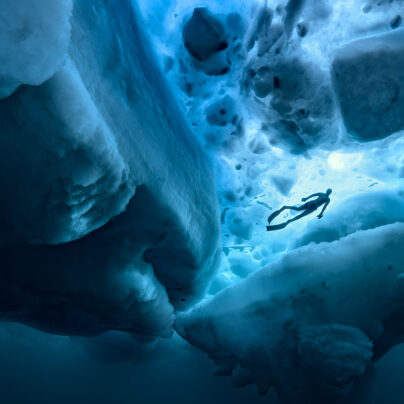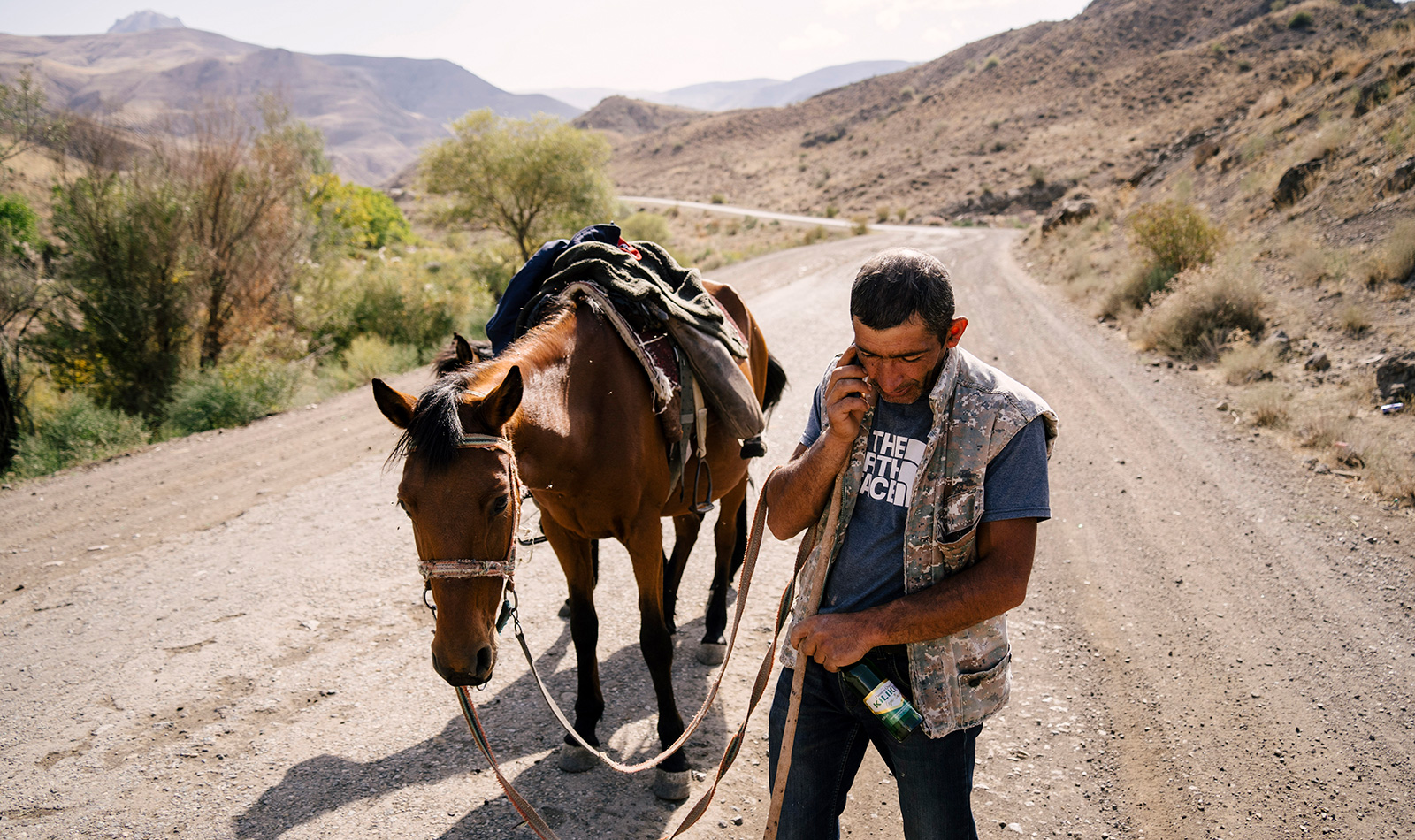Chasing Armenia
Challenging Barriers by Bicycle
Words & Photography by Evan Christenson
On the train, heading east from Istanbul, we eat stale sesame bagels called simit while boys ask us to mail them iPhones from back home. They warn us of terrorists in the region – it’s not the first time we’ve seen signs of tension in the Caucasus before we even arrive. The Kurds are fighting for secession. One of the boys yells ‘AK-47!’ and points a finger gun at me while spitting on my face. I try to laugh it off, uncomfortable at the awkwardness of the interaction, but I am suddenly aware of how little I really know of this place.
Being stuck on a moving train, and heading further into the unknown, makes the feeling even worse. I wonder if I’ll ever make it home. I wonder what good an iPhone might be to a terrorist. Do they use collaborative scheduling software to orchestrate bombing attacks? Eventually Bo and I meet the conductor of the train. He speaks fluent English, is an avid photography fan, and reassures us we’ll be fine as long as we head north and don’t ask too many questions. The war is part of the larger battle for Kurdish independence and has been going on for ages. As with everything in the Caucasus, ethnicity and their tribe’s claim to land are the reasons for war. Later I show the conductor my photographs, and he muses, ‘Have you heard of Photoshop? They could use some filters…’
The uncertainty here would remain. And cycling through the countryside, vulnerable and confused, does little to alleviate the problem. We’re just outside of Armenia when that cloud of confusion starts to roll over once again.
Bo, my girlfriend, the loyal lieutenant, fearless, always smiling, bursting with energy, is still pulling me along. We’re in our groove – now in Turkey and 30 miles from the border. But we have to ride 300 miles out of the way to cross into Georgia, before we can enter Armenia. No crossing has been allowed from Turkey since the 1993 Nagorno-Karabakh War – the dark and brutal fight is still very much felt in this area.
The storm clouds overhead pound us with rain. I find an empty chicken coop and we stand under it, shivering and wet, waiting for the rain to stop. ‘You know,’ Bo says as I cower from the rolling thunder, ‘statistically you’re unlikely to get struck by lightning.’ Just as she says this, a car pulls up and a Turkish family invites us in for tea.
We leave our bikes in the coop, follow the family into their house, and take our muddy shoes off at the door. As the meal is prepared we hunch over a smartphone and converse via Google Translate. Sitting in their small kitchen with a shotgun hanging over the doorway, I begin to feel warm again, recovering from the sluicing rain. I’m even able to ignore the flashes of lightning through the windows. The young daughter, immersed in her phone, ferries the conversation to the whole family, and as we speak I notice more about the people who have taken us in. The mother dances around the kitchen, laughing and gesturing and asking more questions. She wears a head-dress, her son a smart business suit. It’s a tight-knit, rural middle-class family. Soon there’s fried chicken to feast on and a pot of bitter amber tea.
The rain doesn’t look like it’s going to stop, and I ask Bo if she would be OK sleeping on their cramped couch. But when the daughter asks about our destination, and we tell them we’re heading for Armenia, a thick hush descends on the kitchen. No more questions. The stove crackles and we finish our tea in awkward silence. We’ve lost our friends as quickly as we made them. The rain is still coming down as we leave the house, and later we sleep in an abandoned campground overlooking the valley, feeling cold and more alone than ever. It’s a bitter lesson to keep our destination close to our chest when it comes to Turks and Armenians.



Flying sucks. Flying, on a jet, at 35,000ft, with cheap champagne and yet another Kevin Hart movie, offers no space for the world beneath. It drops you anywhere with no explanation of what has transpired in between. Flying confuses the world and defeats understanding. Flying gets more than a lost bag wrong. It gets it all wrong. So when we were figuring out how to get to Armenia, a breezy 13 countries and a continent away, we decided to ride our bikes. There was too much of the world beneath to skip out on.
As we leave Milan and pedal, it all changes: the houses, the food, the weather and people, the pace and the air. Industrial flatlands blend into mountains. The Alps turn into the Dolomites, and we duck into sheds during long thunderstorms, going from Italy over to Sud Tirol and up to Slovenia – and it all changes, ever so subtly and ever so noticeably again. When we get to Slovenia we begin to learn of the tension further down the road. I listen to podcasts and ask questions whenever someone is willing to answer. To me, growing up far from my country’s wars, having conflict in my back yard is a new and terrifying concept.
The mountains unfurl themselves down the Balkan Peninsula and we sweat through the days, camping on bike paths, and try to stay hydrated. We cross into Croatia and the smooth roads start to crumble. Old tractors trundle through towns and stray dogs roam wild. Men, old and young, start piling into bars all day long. We cross the Una River and into Bosnia; we see our first mosque. More old men drink even cheaper beer.
Bosnia scares me. I don’t know what to expect, and immediately we see our first memorials from the war and bullet holes peppering the walls on the roadside. We get invited into strange places for shots in the middle of the day; loud cars with drunk kids and pulsing music wake us up late in the night. We fight through crowds of tourists on the Mostar Bridge, watch boys jump from it, children run and play over it, families take selfies gathered on it. People sell magnets and mugs and bullets all with the image of the bridge. That night we watch a documentary about the battle over the bridge, which separated the Bosnians and Croats, Muslims and Christians – once brothers under Yugoslavia and now bitter enemies. Today it separates one trinket shop from the next. Red Bull hosts a cliff-diving competition from it.
Two days later we stay in a small village with a woman who lost her entire family to the war and speaks broken German. The town drunks keep her company. One asks if we can camp in her garden, and she mumbles excitedly – and indecipherably – while walking to get us a bucket of water for bathing. We spend clunky, sweet hours with her that night. The next morning she watches as we pack up, then hugs us goodbye. She’s been alone for years now. Her eyes, glassed over and puffy, tell of a life of grief. Between our worlds of estrangement we find a home for the night.
Montenegro, Albania, and North Macedonia pass in a flash and we watch as cultures along every border mush, mould, and bump into each other. We learn how to say ‘thank you’ in five different languages within a month. Riding across a daunting, heavily militarised border into Turkey, we hear the call to prayer for the first time. We stop eating pork and the backroads turn into mega highways.



As we travel east, gradually approaching Armenia, we become aware of its reputation. We hear of a raw, dense, and hectic country, with a centuries-old timescale, devout religiousness, and humble, generous people. Armenia is not a highly sought-after place for travellers to visit. I had never considered it before this journey sent us there. But we could come to discover that Armenia, world famous for nothing much other than Kim Kardashian and the actor who played Gollum in The Lord of the Rings, is a small slice of paradise in a growingly crazy world. Its mountains are incredible. Its geology is stunning. Its history is fascinating, its people kind – and their minds are sharp.
Finally, we make it to Armenia after two months of pedalling. My skin is burnt and my tyres are bald. Bo looks as good as always. The guard at the border laughs as we practise how to say thank you in Armenian. Snoor-hagh-aloo-tyu? Sroon-ag-la-hutu? Shnore-lal-ah-lootoo? We practise for weeks. (Shnor-ah-ga-loot-syun.)
We quickly learn that, for Armenians, guests are gifts from God. At first we fight it: ‘No, no, it’s OK, we don’t need more coffee, we’ll be all right.’ But quickly that becomes a shrug of the shoulders, a ‘Sure!’ and a tour of the property. We learn that when you sit down for coffee and someone starts grinning, that means it’s time for drinking. Armenians will raise their chin and flick their neck – the sign for vodka, and the pour will be heavy.
On our first full day of riding in Armenia, through the Lake Arpi National Park, the park ranger flags us down in his little white Lada and invites us into his house for coffee (at this point I’m naive enough to think it only means coffee). His wife is making compote on top of a small stove in the corner, burning cow patties for fuel. She quickly clears the table, cuts some fruit, boils water, and makes coffee for the four of us while her husband gives us a tour of the house. We come back to lavash and soft white cheese. Then more cheese. Then a steaming veggie omelette. Then more fruit. How about pear soda? Have you tried that? It’s delicious. We don’t understand them and they don’t understand us but there’s a lot of gesturing and smiling and the occasional Google Translate. She brings out a slice of cake and a bowl of candy. We’re rolling on the ground, stomachs bursting, but she puts candy on our plates anyway. ‘No, please don’t,’ I groan with a smile, but she won’t listen. She takes a handful, grabs Bo’s shirt pocket, and stuffs it in there. She smacks Bo’s butt on the way out.
We get back on the bikes and ride for a while, stunned. What just happened? Bo laughs and I laugh and we head south, further into the interior. We learn a lot these first days – mainly, to pack less and stop more.
One day, while riding down a highway, we see a group of men in a quarry frantically waving us over. Curious, I grab the brakes. Bo eventually joins me to find a group of men drinking vodka in the morning while working with a 2m bandsaw. They boil water for coffee with an iron from the fire. One man slices tomatoes and another goes to scale a tree, at least 15m to the top, and returns with a bushel of grapes. We all eat and drink together for no reason other than we can – and therefore we should. Bo, the stronger of the two of us, drinks my vodka for me, and we get back on the bike and ride away, laughing about the Armenian-ness of it all.



On our final day of riding in Armenia, we ride through the 2020 Nagorno-Karabakh warzone and descend out of the mountains to return to a home that has hosted us before. Garick and Shake have been expecting us, and Shake has baked a cake to celebrate our arrival. We drink their home-made wine, and Shake teaches Bo how to make the pickled vegetables we endlessly crunch. Bo pens it all down excitedly, so that she can tell her mom back home which ingredients to buy. I sit with Garick as he tells stories of his days serving in the army – both in the 2020 war and the 1994 war. Garick is a mechanic for heavy equipment at the local copper mine. He’s a husband and a father of two, and for these couple of days he and Shake become our Armenian parents. Thinking of gentle Garick with his greying beard and deep laugh fighting for his life next to his real sons makes me sick.
In Istanbul we were shuffled around and hustled for attention, but in Yerevan no-one cons or harasses us. Even when we ride through Nagorno-Karabakh, with its visible scars and endless trucks, its Russian peacekeepers and spray-painted slogans, everyone treats us so kindly. The soldiers that search our bags and ask us questions make jokes about sports teams back in the US. They even laugh when I fake running for it.
There are also the security guards, who catch me taking photos of the big copper mine in Alaverdi, and give us apples for the road once we leave. Then 10 minutes later a man buys us a dozen apples at a market so we can try them. Or that one day in the south, when five different people try to give us walnuts to taste. Walnuts bounce out of our handlebar bags when riding through town, and yet people persist.
In Armenia, sometimes the hospitality is overbearing. Sometimes the light is low and you’re in a rush and have a place to get to and it hurts to say no. Or you’re climbing a mountain at 10.00am and have 800m left to push and you’re invited in for coffee and they start pouring vodka shots. The vodka, home-made from mulberries and stronger than gasoline, burns when you push high into the Caucasus. But that’s life when bikepacking in Armenia. You fall in love with the people around you. They force you to. It’s a hug from the great aunt you haven’t seen in years, who’s put on some weight since then and just wants to hold you.
Armenians are unstoppable in their generosity. Their land is one with a bloody history, and their people are hardened by it. But sometimes, after immense suffering, people learn to give rather than take. They learn to laugh rather than cry. They hug instead of shake. Armenians are the nicest people I’ve ever met, and they buy you apples and stuff you full of walnuts, even when you can’t carry any.
This story was first published in Sidetracked Volume 24
Evan Christenson // @evanchristenson // evanchristenson.com



